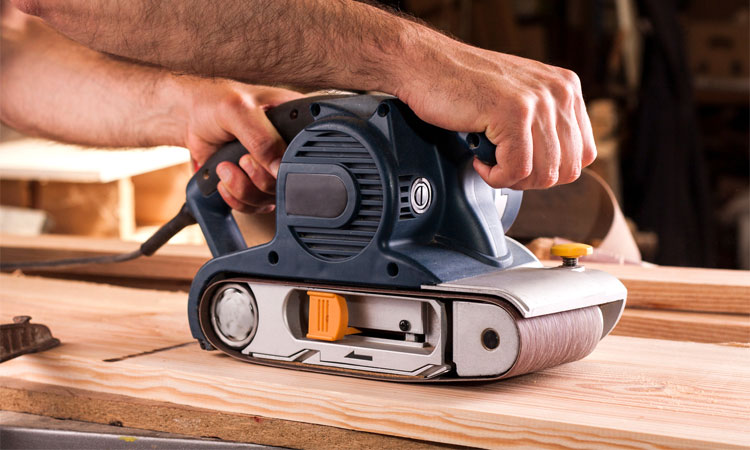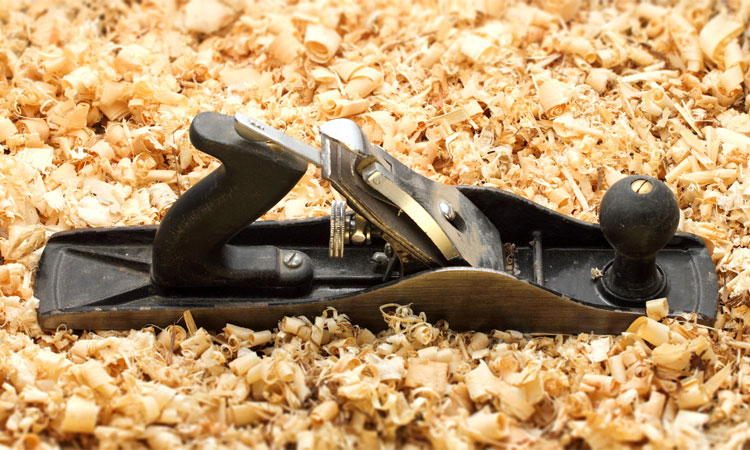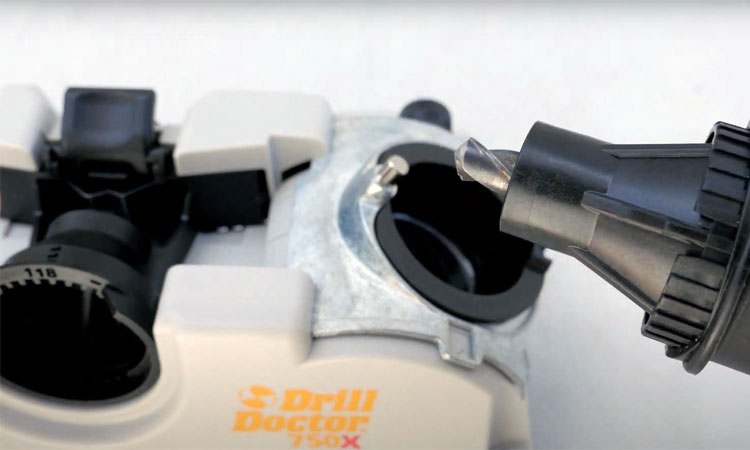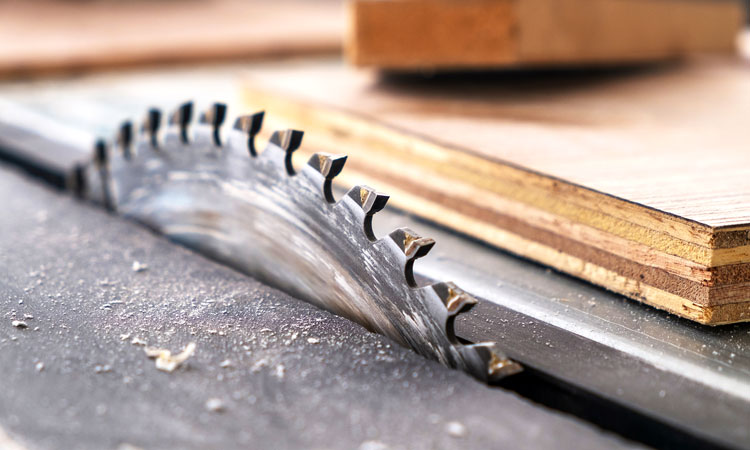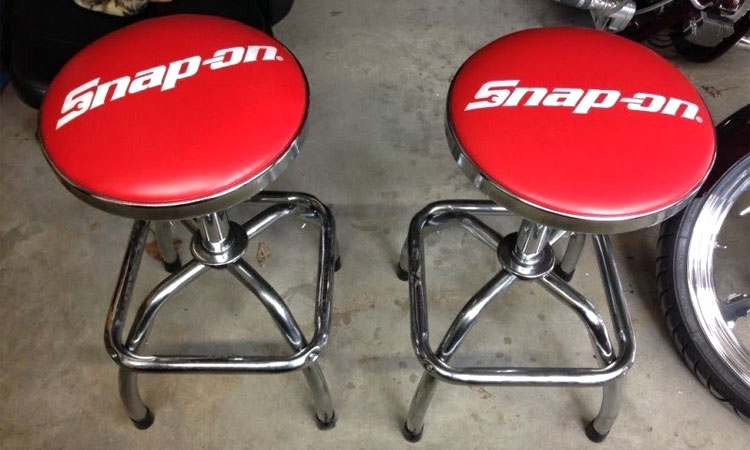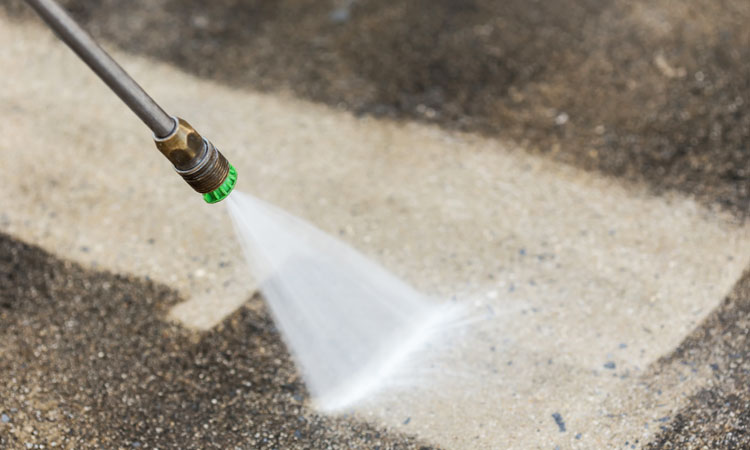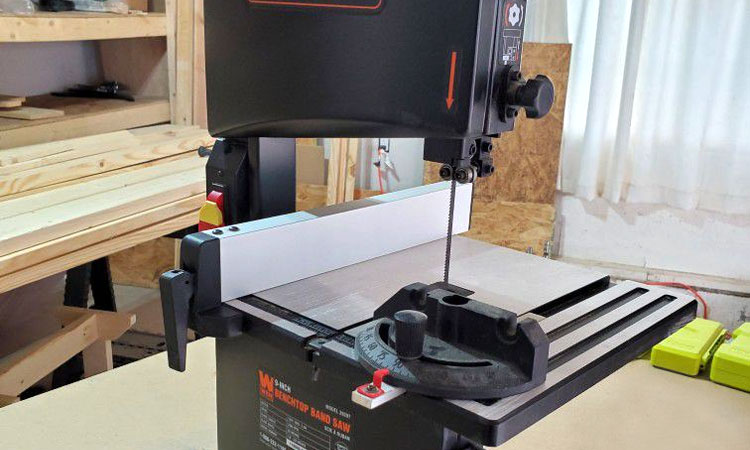7 Best Belt Sanders for Performance and Dependability
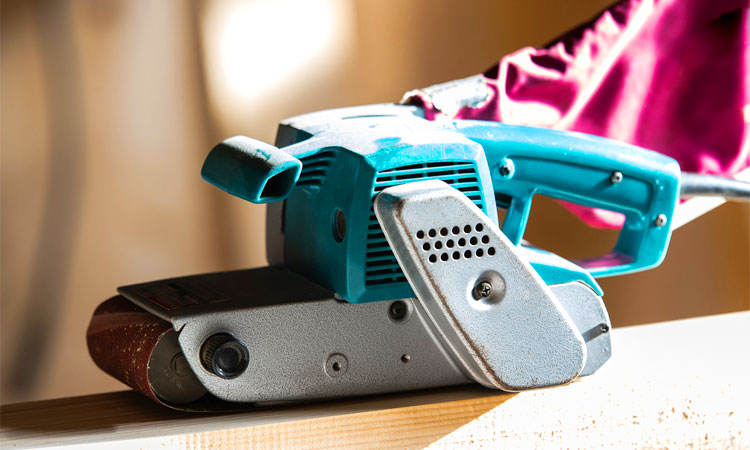
The best belt sander should fill a variety of uses, including heavy sanding and light polishing. The motor has to supply enough energy that the tool won’t bog down during use, but a powerful motor also needs to be adjusted for light work, so variable controls are preferred for everyday use.
This list of top-rated belt sanders includes different types of sanders with various belt sizes including a couple precision sanders with narrow belts. Our picks are rounded out by a dual-sanding system that gives you more flexibility, because a belt sander can’t do every sanding job alone.
See Also: Dry Sanding vs Wet Sanding (What’s the Difference?)
Our 7 Favorites
| Product | Belt Size | Amps | Speed | |
|---|---|---|---|---|
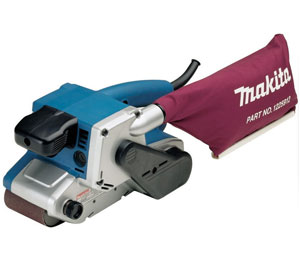 | Makita 9903 | 3" x 21" | 8.8 | 690-1,440 ft/min |
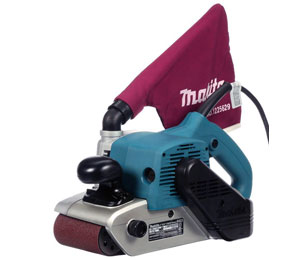 | Makita 9403 | 4" x 24" | 11.0 | 1,640 ft/min |
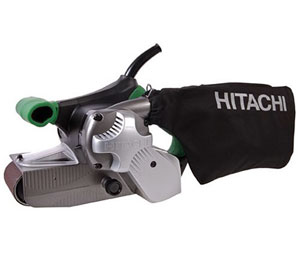 | Hitachi SB8V2 | 3" x 21" | 9.0 | 820-1,475 ft/min |
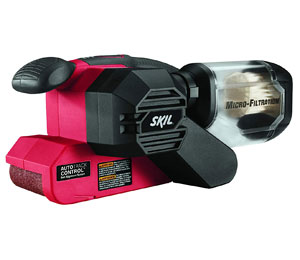 | Skil 7510-01 Sandcat | 3" x 18" | 6.0 | 1,050 ft/min |
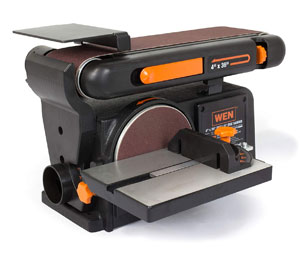 | WEN 6502 | 4" x 36" | 4.3 | 1,900 ft/min |
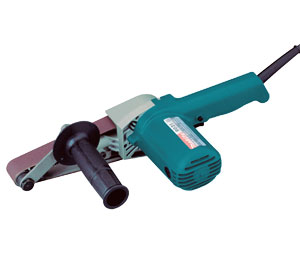 | Makita 9031 | 1-1/8" x 21" | 5.0 | 656-3,280 ft/min |
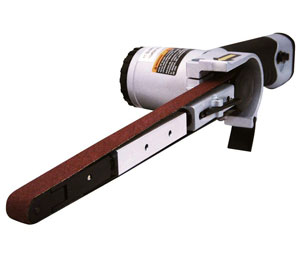 | Astro 3037 | 1/2" x 18" | n/a | up to 16,000 ft/min |
Belt Sander Reviews
#1 – Makita 9903

For situations that require a lot of movement, such as sanding a floor, the Makita includes a 16 foot cord that allows you do the entire room from a single outlet.
A little debris on a freshly sanded work area can be a problem, which is why this model includes a cloth dust bag to reduce the cleanup.
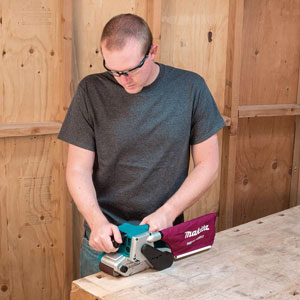
The sander is built job site tough, and the only major complaint that surfaces again and again is the weight of the unit, regardless of the fact that the weight of the tool is actually a plus in heavy sanding environments.
Built for heavy use, this unit will work well on everything from household furniture refinishing to heavy duty floor or metal sanding.
>> Check current price <<
#2 – Makita 9403

The powerful 11-Amp motor can run its 4-inch by 24-inch belt at an impressive 1,640 feet per minute for quick stock removal. Furthermore, a labyrinthine constructed interior protects the motor and bearings from particle contamination.
The balance is superb on this sander, and the speed means this baby puts out plenty of sawdust. The included bag is good for small jobs, but many owners just attach it to a shop vac for dust collection or connect a hose leading to a covered bucket when doing larger jobs.
Perhaps the single most damaging problem with the 9403 is a manufacturing defect which has a habit of slipping past quality control.
The rear drive wheel often has a mold line, causing it to dig into the wood you’re cutting. This leaves you high and dry unless you feel brave enough to remove the mold line yourself.
>> Check current price <<
#3 – Hitachi SB8V2

It features a few innovative advancements, including the elastomer grips and the time saving tracking window that lets you know the belt is riding true.
To prevent muscle fatigue, the soft grip coating on the handles provides you with an easy, comfortable grip that’s a favorite of those who have used other sanders.
Dust collection is another feature the Hitachi excels at with many owners saying it captures more than the competition.
Because of the weight and design, this unit may be difficult to get the hang of initially, but remember that it is a heavy duty tool designed for more experienced users, so that learning curve may slow down beginners.
The heft also means you don’t need to apply additional pressure when sanding.
>> Check current price <<
#4 – Skil 7510-01 Sandcat

With its 3″ x 18″ belt spinning at 1,050 feet per minute it’s a bit slower than the competition but fast for its price range.
The auto track system ensures the belt stays centered on the project, while a micro filtration system captures even fine dust particles.
The clear dust canister allows you to see when it’s time to dump, and you can change belts with a single lever making changes fast and effortless.
You don’t need a lot of pressure to make this sander work. In fact, you often don’t need to apply any weight at all, allowing the sander to gently but quickly smooth out smaller defects.
The power is impressive for its size, and belts are a common size, making it a snap to switch out the grit count as needed.
Several customers have had a problem with the motor burning out within a year or even a few months. The use of plastic for some parts exposed to heat (common with inexpensive sanders) may be the culprit in at least some cases.
This doesn’t seem to be a common problem, but the wide range of lifespans and circumstances means you should keep track of the warranty.
>> Check current price <<
#5 – WEN 6502 2-in-1 Belt/Disc Sander

The belt spins at 1,900 RPM and can be adjusted from 0 to 90 degrees tilt for increased usability. The 6″ side disc spins at 3,600 RPM and allows for more versatility in your sanding projects.
The heavy duty cast iron base will hold the sander in place for long material handling or extended tasks.
On long projects, the tilt of the belt can be locked in place with the special set screw and included allen wrench. To help you get more done in less time, the WEN 6502 is built with a tension lever for fast belt changes.
WEN has been in business since 1951 and has become recognized as one of the most responsive tool manufacturers of the day.
To this end, the company reacts quickly to complaints or problems and seems to take a genuine interest in making every customer a happy one.
>> Check current price <<
#6 – Makita 9031 Precision Belt Sander

The design makes this sander highly maneuverable in close quarters, while the exposed front pulley makes it easier to work on irregular shapes. Additionally, multi-position side handle allows for more comfortable operation.
When you want a good precision belt sander, it doesn’t get much better than the 9031. This little guy can get into spaces where you’d normally have to hand sand. Best of all, the controls are all easily accessed, making it often possible to do one-handed sanding.
There are very few complaints about this sander. Be advised that a few users have actually received the Japanese version of this model after ordering which runs on 100 volts so make sure you purchase from a reputable dealer.
Also, some owners wish the front handle was designed a bit better since it gets in the way of some tight spots.
>> Check current price <<
#7 – Astro 3037 Air Belt Sander

It comes with a 40-grit, 60-grit, and 80-grit selection of belts so you can get to work immediately, and has a simple belt tension lever to help you get each sanding job right the first try.
Unlike the other models in this list, the 3037 is designed specifically to remove spot welds and excels at this task.
A large percentage of owners use this in their auto body shops. The power, precision, and reliability make it a favorite compared to top-name brands such as Snap-On which can cost 4x the price.
One advantage it has is the rear-mounted valve to set speed, letting you remove multiple welds without having to hand-adjust every time.
A few owners have reported receiving a refurbished product instead of a new one so be sure to purchase from reputable sources when shopping online.
Beyond that, it should be noted that there is no trigger guard, so sitting the sander down the wrong way may activate it.
>> Check current price <<
FAQs
You’ve probably owned a few sanders over the years, but may not be familiar with belt sanders. Here are a couple commonly-asked questions regarding this type of sander and its uses.
What is a Belt Sander Used For?
Belt sanders are powerful tools designed to help you shape and remove large amounts of stock in a relatively short time. For this reason, they are rarely used in finishing and most often use rougher grit sandpapers.
While mainly used on wood, they are also excellent choices for smoothing out metal surfaces.
Belt Sander vs Orbital Sander – What’s the Difference?
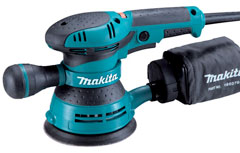
There is actually a huge difference between belt and orbital sanders, which makes owning one of each a perfect marriage. Belt sanders are fast and aggressive, whereas orbital sanders move slow and gentle.
An orbital sander is perfect for finishing work, especially random orbital sanders, but you will need a belt sander for removing larger amounts of material.

